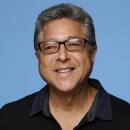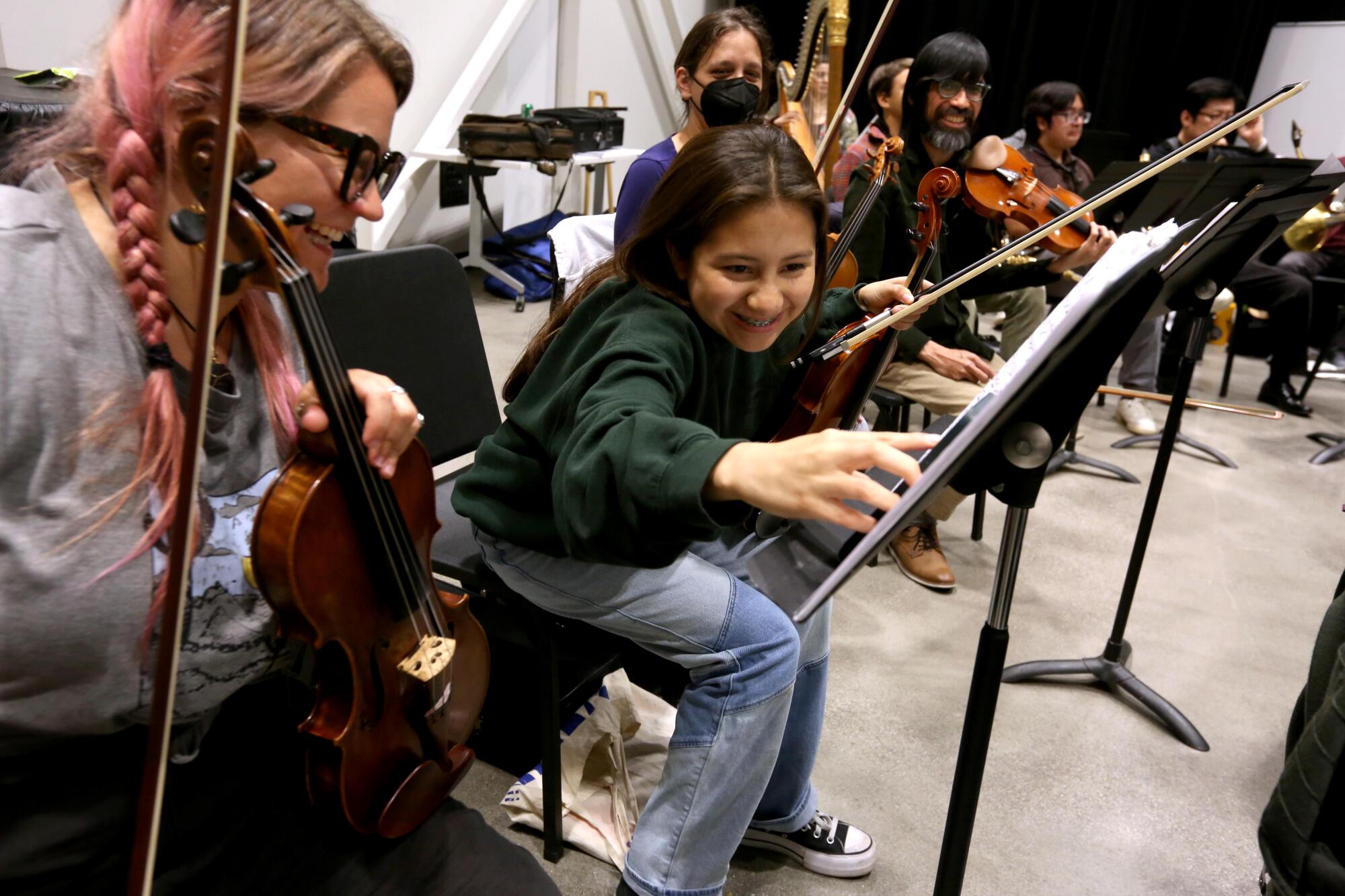
- Share via
Time was running out. After six months of preparation at a cavernous hall near Sixth and Rampart, the big concert was less than a week away, and Monday would be the final rehearsal for an orchestra unlike any other in California.
A 76-year-old clarinet player drove in from Camarillo. A 14-year-old violinist who lives near LAX was driven in by her mother.
They took their seats with more than 70 other members of the orchestra, some of whom arrived on foot or by bus, bicycle or scooter. A 48-year-old doctor who works on Skid Row set up near a shy middle school student. A retired theater director, 73, took his place in the double bass section, near three high school percussionists.
They came together across a spectrum of ethnicity, age and income, and maestro Daniel Suk was filled with pride when he stepped to the podium — not just because of the musical growth he’d witnessed from an orchestra built to mirror the many faces of Los Angeles but because of the bonds formed among the performers and what they represent.
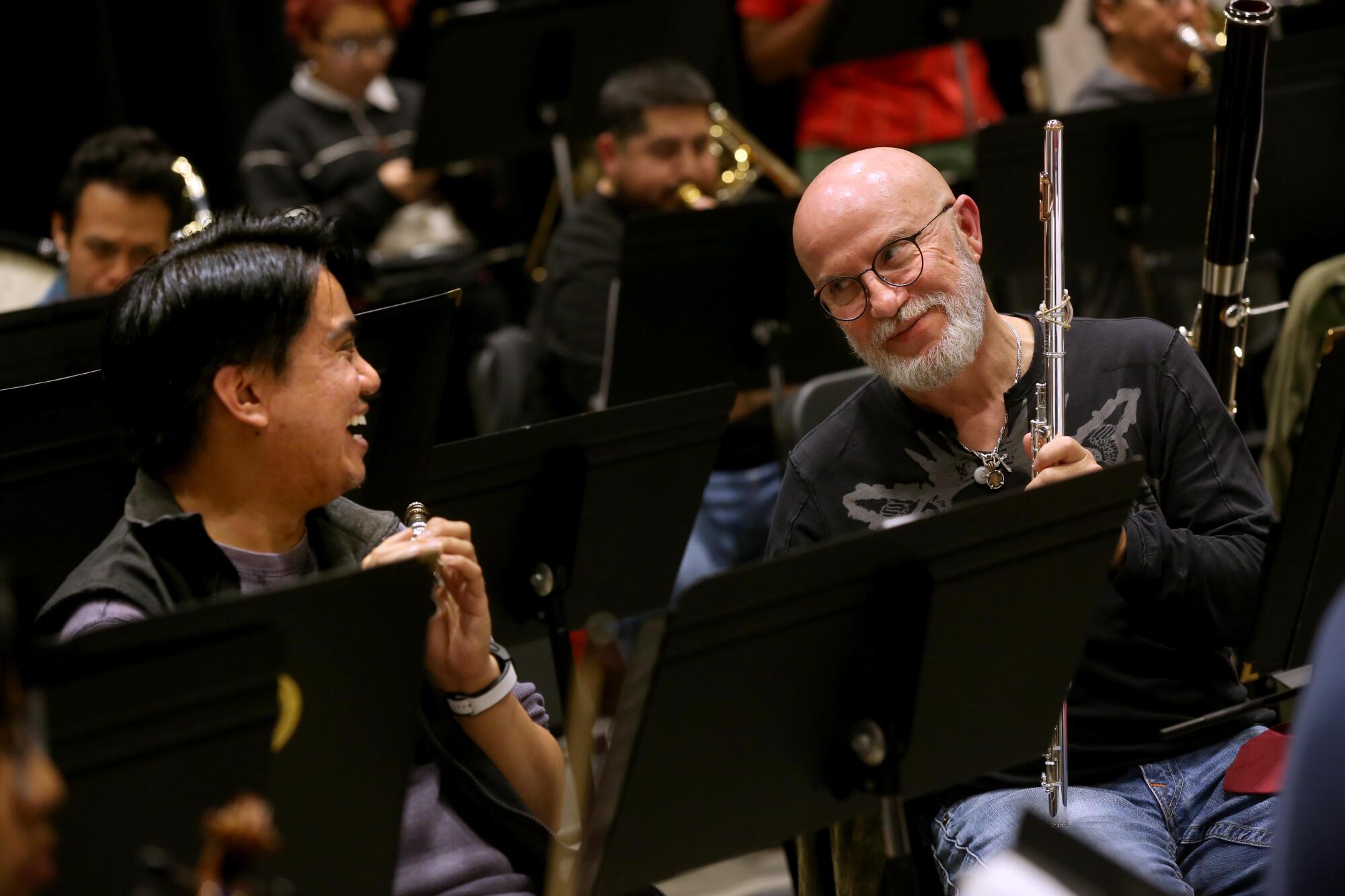
Suk raised his baton and, with a flick, the Heart of Los Angeles (HOLA) Eisner Intergenerational Orchestra was in full flight, soaring through works by Puccini, Verdi, Rossini and Bizet.
I was lucky enough to have a front-row seat thanks to an invitation from Tony Brown, chief executive of the nonprofit HOLA, which provides free after-school programs in academics, athletics and arts as part of its mission to bulldoze barriers to opportunity.
Brown had long wanted to develop programs that might bridge cultural and generational gaps and create a deeper sense of community. At one point, he traveled with Trent Stamp of the Eisner Foundation to see an intergenerational orchestra in New Jersey.
California is about to be hit by an aging population wave, and Steve Lopez is riding it. His column focuses on the blessings and burdens of advancing age — and how some folks are challenging the stigma associated with older adults.
“I then asked Tony, if we provided the funding, would he be able to build such a group here in our city?” Stamp said.
Brown was all in. He is naturally inclined, against a host of entrenched economic and social challenges, to see the city as a place of hope, its full potential yearning to be tapped.
“We gain strength from the people we get to be with,” he said one night at rehearsal in describing both the mission and the soul of HOLA.
Brown tapped Suk — an accomplished conductor, artistic director and operatic singer — and the search began for musicians, some of whom were music teachers at HOLA and some of whom were current or former students. The players had varying degrees of training and skill, but that set up the possibility of growth, with the more advanced musicians — regardless of age — mentoring those with less experience.
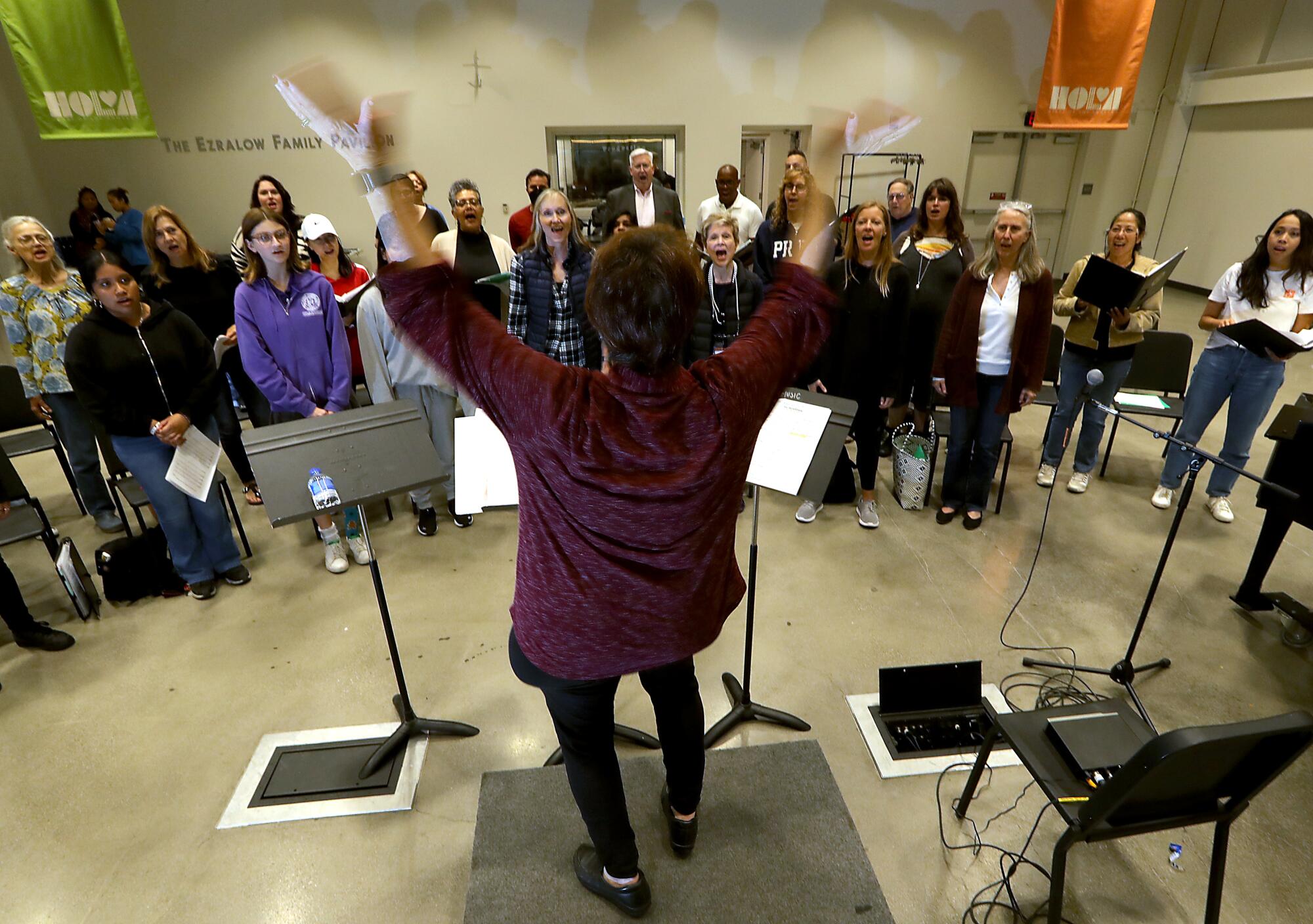
That’s a model of collaboration that could serve the world well as the population ages. Younger generations will be relied upon to solve the housing and healthcare challenges they see their parents and grandparents facing. Older adults can avoid the withering effects of isolation, remain active and engaged and find purpose in tutoring or learning from youngsters.
Suk, 50, believed from the outset that the orchestra had more than one calling.
“We’re facing an absolute crisis,” he said. “I see seniors who are just so lonely and a younger generation that has no connection to them. … You go to a family gathering, and there’s no conversation any more.”
After months of planning, the pandemic delayed the dream. But the orchestra finally gathered in the summer of 2021 and began practicing, growing and performing. HOLA later expanded the concept, starting a jazz band and a choir.
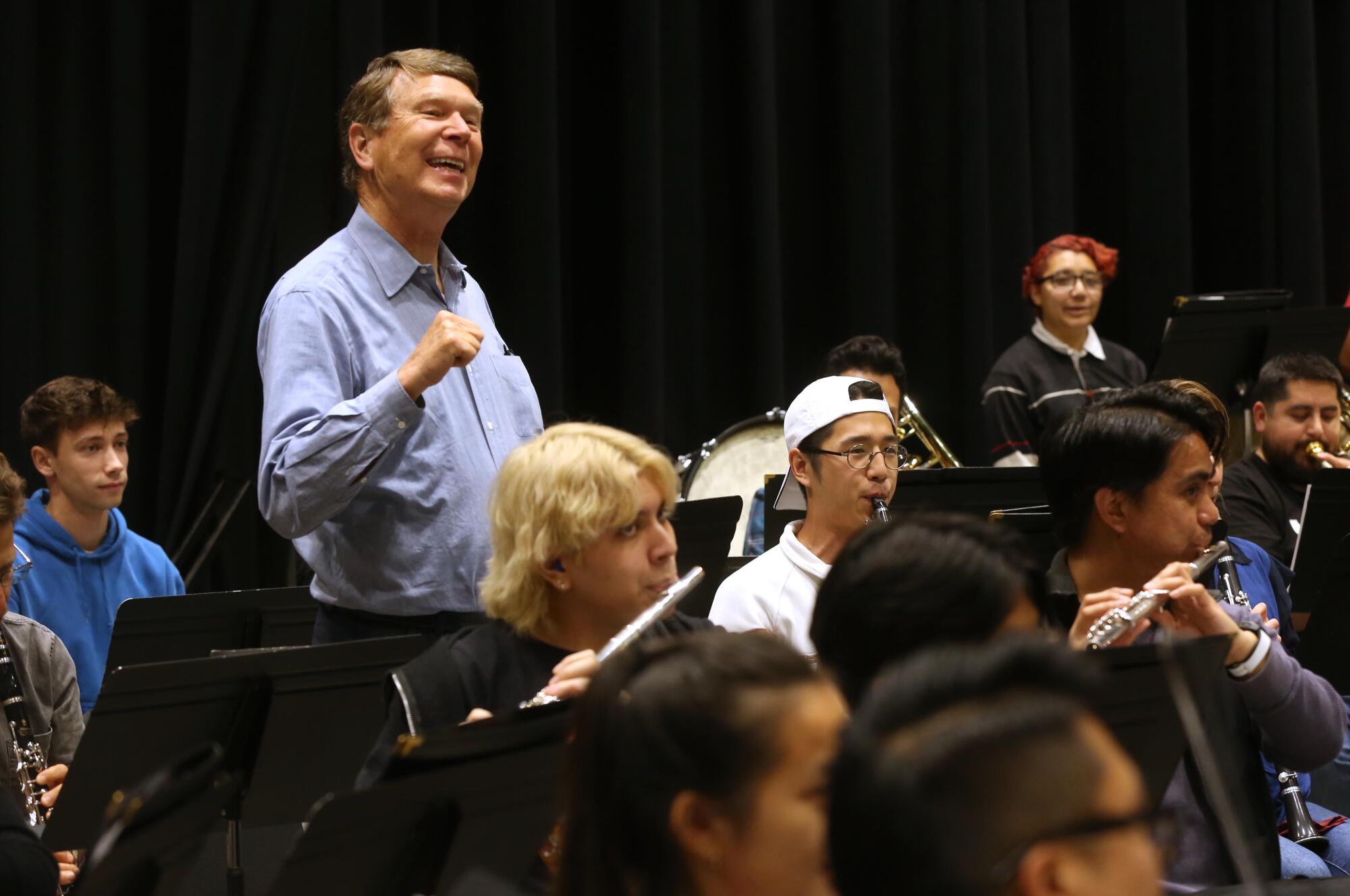
At a choir rehearsal, I met Katie Martinez, a 13-year-old with an interesting story about how she got into the choir.
“I was here volunteering as a stagehand, and I liked how the music sounded,” the middle schooler said, adding that she’s inspired by the older members of the orchestra. “They could be doing other things, but they come here.”
Choir member Janet Clayton, a public affairs adviser and former editor and colleague of mine at the L.A. Times, told me she and a younger singer got to talking about a book they both like, “Working.” But they soon realized they weren’t exactly on the same page. Clayton was talking about the classic by Studs Terkel, and her companion was talking about a graphic-novel adaptation of it. Neither knew the other book existed until they shared notes.
“That’s the kind of conversation you can have when you meet people in an intergenerational situation,” said Clayton.
At one orchestra rehearsal, Maryjane Puffer told me she hadn’t played her saxophone in decades and was a tad apprehensive about dusting it off.
“I had to relearn how to play,” she said. “But the kids were like, ‘Don’t worry, Miss, you’ll be better next time.’ It’s awesome. It’s amazing.”
Oscar Cuellar, 19, noted: “It’s a bond I don’t experience anywhere else.”
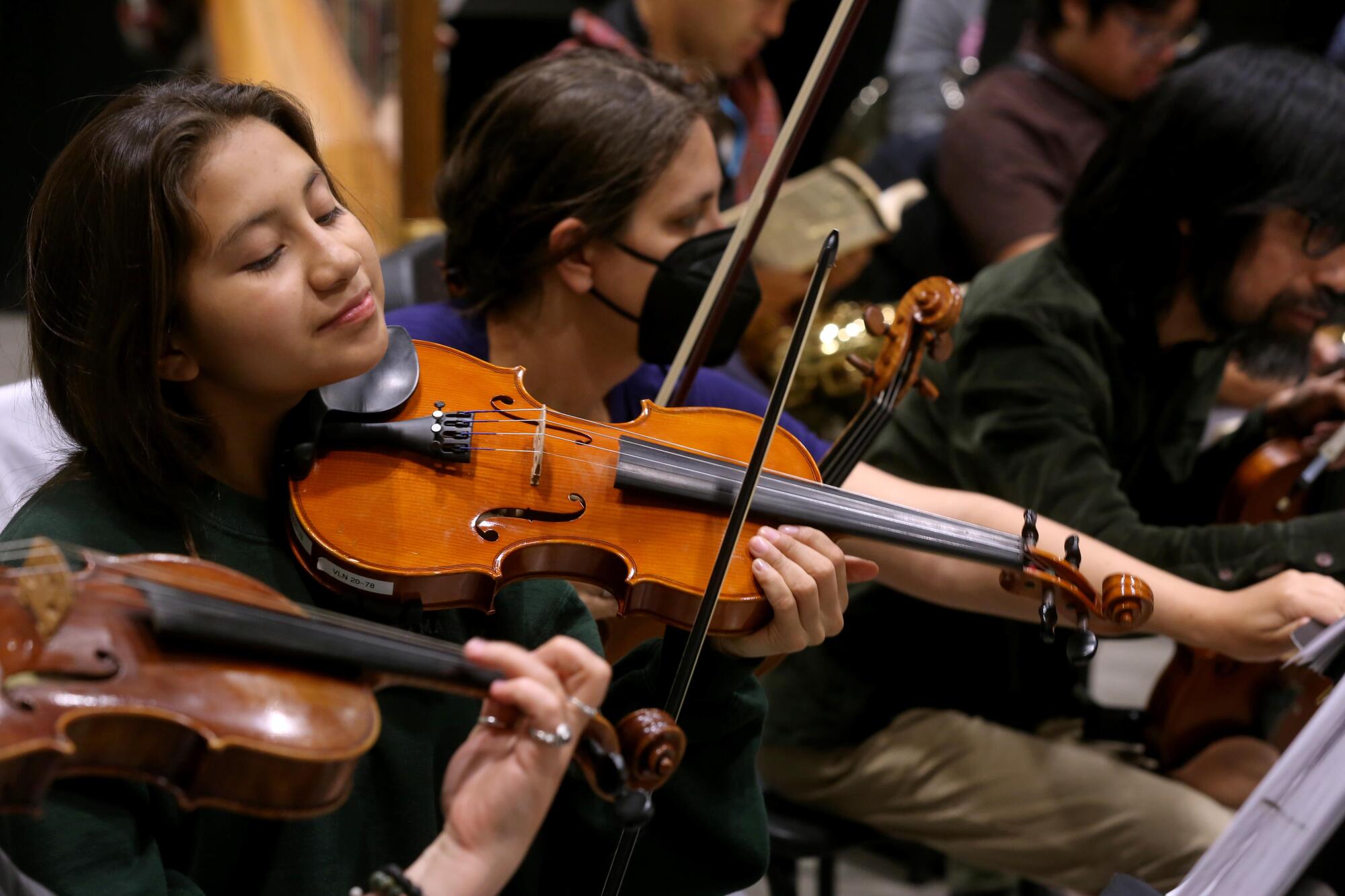
Suk uses a group communication app to keep members in touch with him and one another. Cellist Benton Preciado, 33, said the use of that app, and social media, have turned the rehearsal hall into a classroom.
“You saw younger members telling older members, ‘Here’s how you download the app; here’s how you see your post,’” Preciado said.
Michael Kim, a middle-age violist, said that in an orchestra, your only focus is on your part, in the service of everyone around you.
“Age becomes kind of a non-factor,” he said, “because we connect at the musician level.”
Violinist Gerson Galdamez, 27, said there was a bit of nervousness in what was initially a room full of strangers. But over time, the players, who rehearsed once week, connected across the decades, and conversations that began during one rehearsal would carry over to the next.
He took notice with a trained eye, having graduated from USC with a doctorate in gerontology. When I asked how he got started on that track, Galdamez told me that as a child in Compton, his extended family lived under one roof, including elders who needed help at times. He sometimes grabbed his violin and accompanied his mother, a hospice nurse, on her visits to care facilities, where he played for patients. He now works as a policy adviser, with an interest in changing societal attitudes about aging and older adults.
“The arts are really the way to do it,” Galdamez said, calling the orchestra “a canvas for connections.”
When the orchestra met for its final rehearsal, five days out from its season-ending “Opera Gala Spectacular” on Saturday, I walked into the building with 14-year-old violinist Maya Miguel Hernandez, who confessed her shyness.
“I don’t really talk much, but the people I have talked to usually are really kind. One time someone gave me a tip, and I really appreciate it,” she said.
Tommy Feng, another 14-year-old violinist, told me he hasn’t abandoned pop music. He mixes some Harry Styles and Shawn Mendes with Puccini and Verdi.
“I got a lot better playing with older, more experienced players in an orchestra,” Feng said.
Steve Hauser, 76, said that when he joined the clarinet section, he wasn’t up to par.
“Amy was 11 and on my right; Brenda was 17 on my left,” Hauser said, and both were a notch or two above him. The retired attorney joked that he would have been booted out of the orchestra if not for the fact that he’s on the HOLA board.
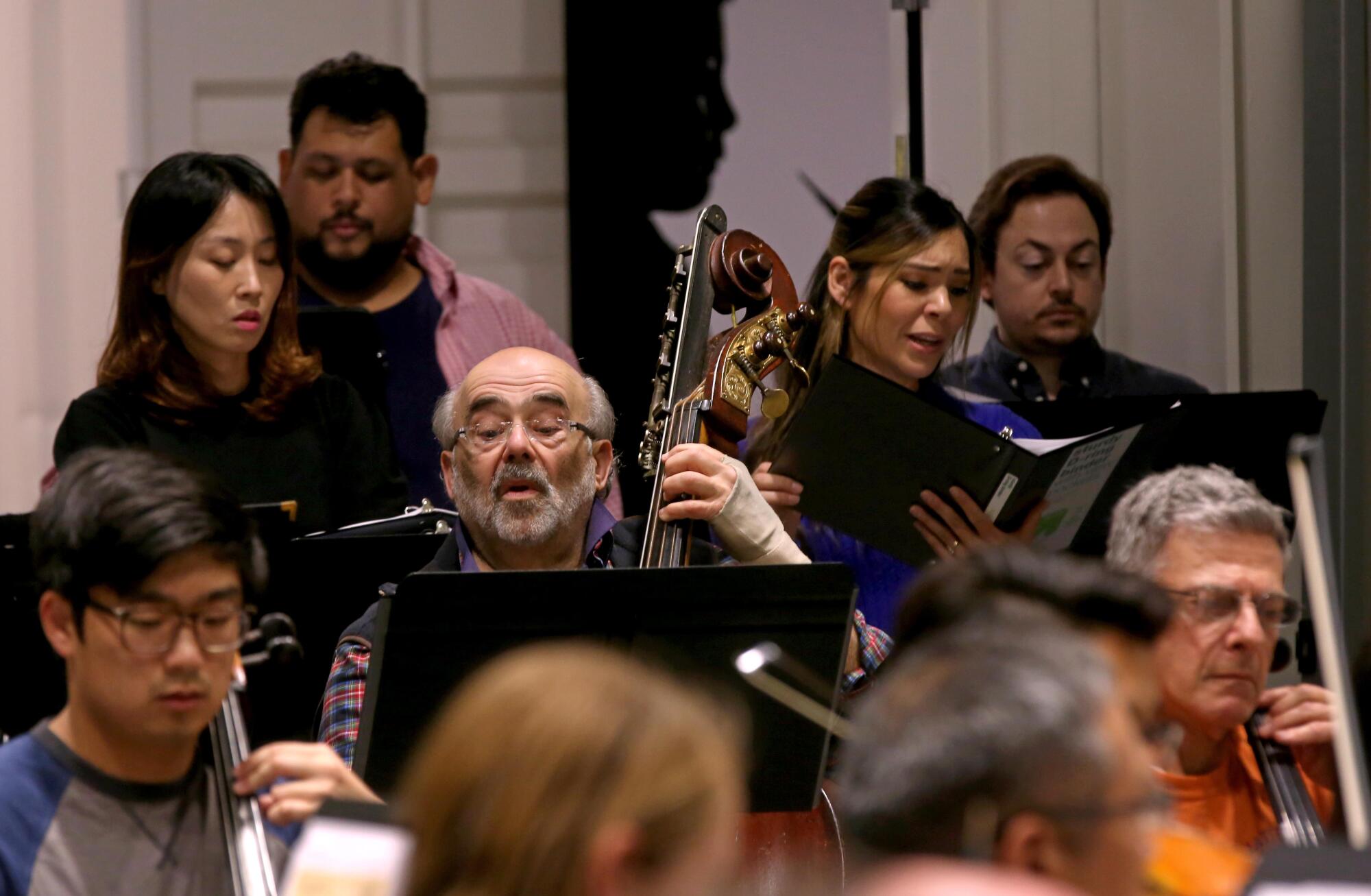
In the final tuneup, Suk led his orchestra through music from “Aida” and “Carmen,” the “William Tell” overture and more. Guest opera singers took their turns with the orchestra to nail down timing, expression and theatrics.
Suk complimented and thanked the orchestra after almost 2½ hours, calling the rehearsal to a close. But from the bass section, Louis Fantasia, a writer and theater director in his 70s, suggested they keep at it a few more minutes to tighten some loose connections, and so they did.
“We can have differences, different backgrounds and cultural histories,” Fantasia had told me earlier. “But we can come together as a unit, and I think that is the symbolic strength of this ensemble.”
Amen to that. In a time of petty division and ugly discourse, here’s a safe place without fear or judgment, a place where music more than a century old is a unifying and healing force, and where differences — including age — are temporarily erased.
The masses won’t hear this music, but what matters is that it exists, that HOLA exists, that the musicians can go forth, talk about finding common ground in the pursuit of something beautiful and inject others with the spirit of possibility.
Late Saturday afternoon, at the Berendo Street Baptist Church in Koreatown, the orchestra was perfection, the singers were inspired, and the hundreds in the audience were brought to their feet.
There was only one thing left to say.
Bravo!
More to Read
Sign up for Essential California
The most important California stories and recommendations in your inbox every morning.
You may occasionally receive promotional content from the Los Angeles Times.




